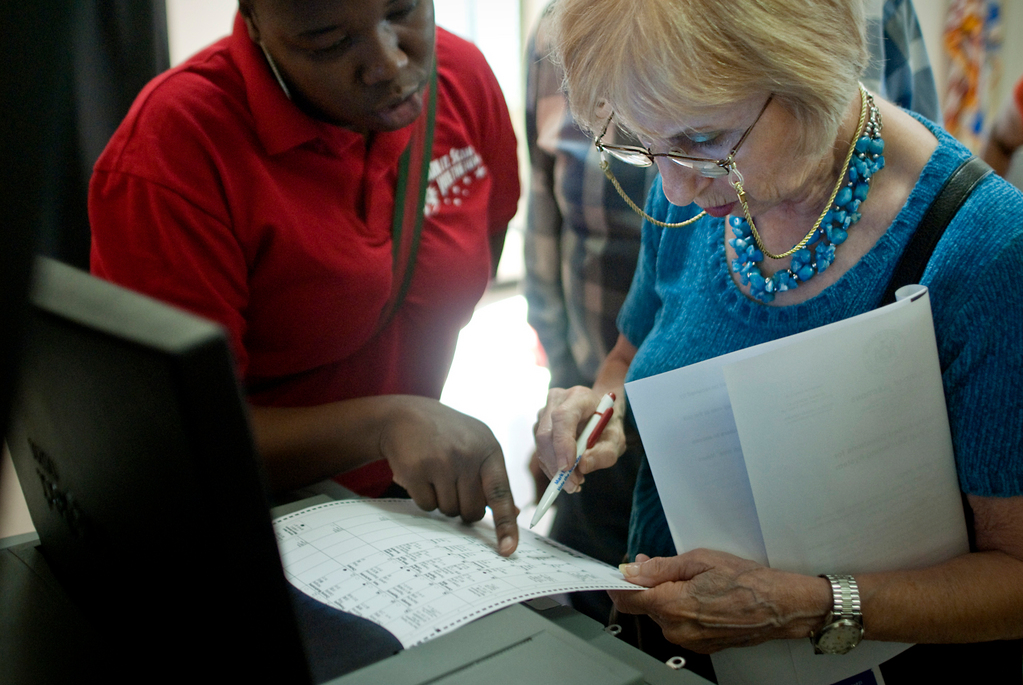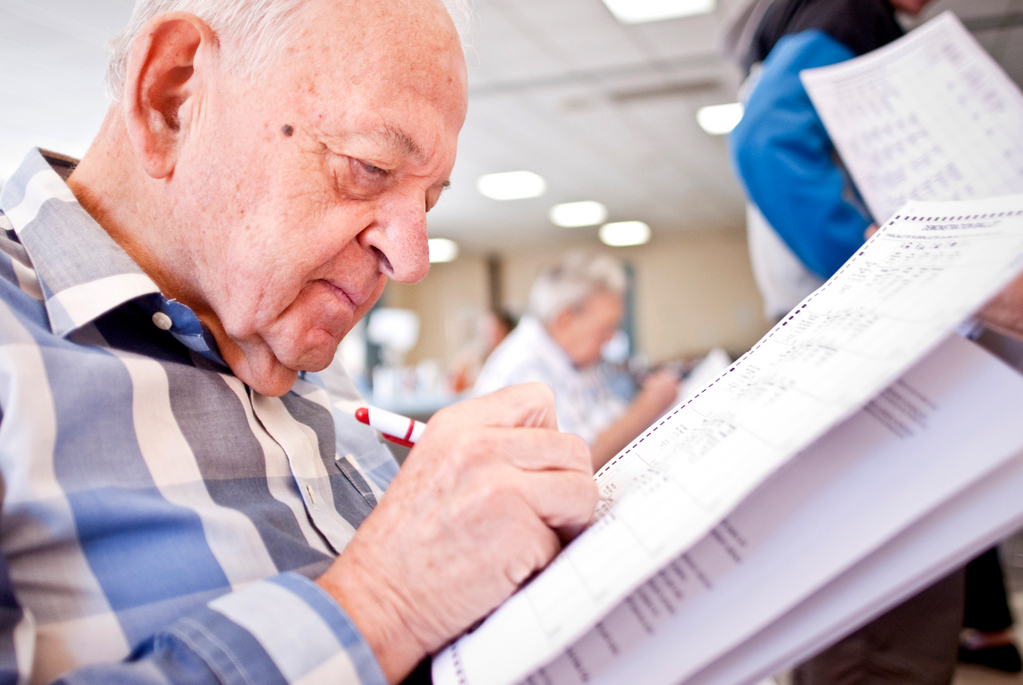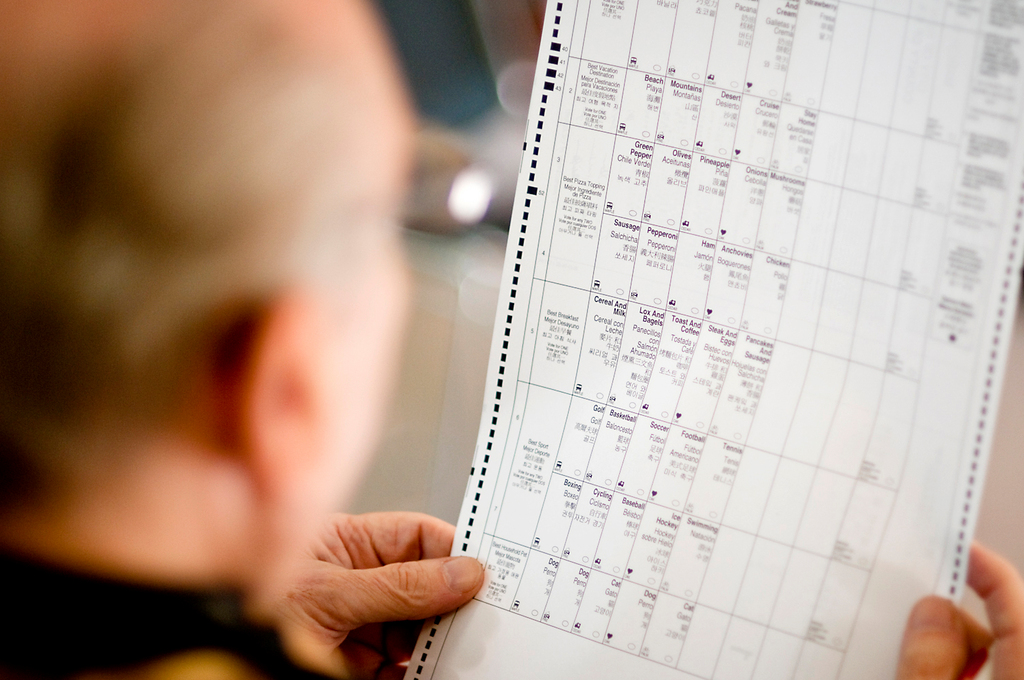New machines will greet votes at the primary polls
The old lever voting machines are things of the past.
While many long-time voters equate Election Day with pulling a big red lever at the polls, starting with the Sept. 14 Democratic primary, people will fill out paper ballots that will be scanned electronically. The machines will count the votes and create a paper tally.
At a recent demonstration held at the Riverdale YM-YWHA, Board of Election workers handed out faux ballots with options like best ice cream flavor, best pizza topping and best vacation destination. Attendees were instructed to fill in the SAT-like bubble to indicate their responses to each question and use the scanning machine to read their answers.
“This is much easier,” said Adolfo Cheng, a 74-year-old Riverdale resident who was trying out the new equipment.
Seniors lined up to place their ballots into the tray of the optical scanner, which grabbed the paper, processed it and dropped it into a locked box. One gasped in awe as the machine, much like a fax or printer, sucked their ballot in.
The Elections Systems & Software Inc.’s Optical Scanning System finally brings New York State, the last to adhere to new requirements, into compliance with the Help America Vote Act. According to the Board of Elections, HAVA was passed by Congress in 2002 and requires states to use voting systems where each machine can print an individual tally at the end of the day, which the old machines couldn’t.
Another HAVA requirement is to provide a way for people with disabilities to vote privately at their polling sites. For two years now, AutoMARK Ballot Marking Devices have allowed independent voting with headphones, adjustable touch screens, and keypads, sip and puff devices and rocker paddles.
While many people agree that increased access for people with disabilities and a paper trail are good things, a lawsuit filed in late June by the National Association for the Advancement of Colored People, the National Coalition of Black Civic Participation, Families United for Racial and Economic Equality and others, claims the machines are confusing and could result in lost votes. The case is being tried in Brooklyn’s federal court.











